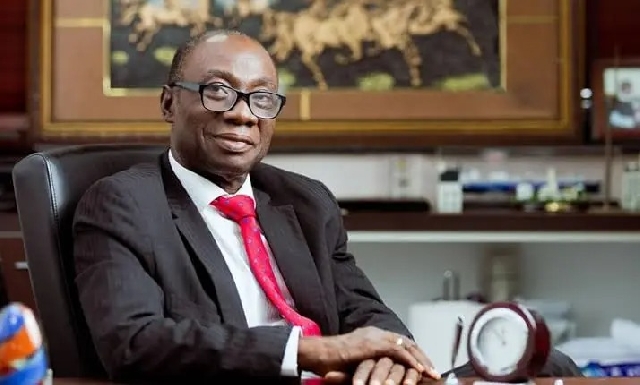Weak corporate governance crippling local banks-DR Kwabena Donkor
 Dr Kwabena Donkor
Dr Kwabena Donkor
Former Minister of Power and governance consultant, Dr. Kwabena Donkor, has issued a strong warning that a longstanding culture of weak corporate governance is undermining indigenous Ghanaian businesses—especially local banks.
Speaking to The High Street Journal, Dr. Donkor said governance failures have become deeply rooted across both state-owned enterprises and private indigenous companies, stressing that Ghanaian-owned banks remain the worst affected.
According to him, the repeated collapse or stagnation of Ghanaian businesses stems largely from one core problem: appointments based on loyalty instead of competence.
Dr. Donkor noted that many Ghanaian entrepreneurs continue to appoint children, relatives, and close friends as directors even when they lack the capacity or knowledge to carry out the role.
This practice, he emphasised, violates the Companies Act, 2019 (Act 992), which outlines clear expectations and responsibilities for company directors.
“At the heart of our business failures—whether public or private—is poor corporate governance.
Absolutely poor corporate governance,” he lamented.
He added that too many directors in the private sector do not understand the functions the law assigns to them, leaving companies exposed to weak leadership and poor decision-making.
Dr. Donkor further argued that Ghana faces a cultural challenge of being “uncomfortable with knowledge.”
He suggested that many business owners deliberately avoid appointing highly qualified individuals because they fear opposing views or losing personal control.
“We seem to be a people afraid of knowledge,” he said.
“Appointments are made that border on mediocrity, simply because some owners want to maintain unnecessary personal control.”
He warned that this has resulted in corporate boards—particularly within local banks—being unable to interpret financial statements or provide meaningful oversight, leading to weakened institutions and eventual collapse.
The former minister expressed disappointment that the Ghana Institute of Directors, despite its influence and mandate, has been largely silent on the matter.
He urged the Institute to become more active in championing public education, pushing for reforms, and sparking national dialogue on how directors are appointed and trained.
“Unfortunately, the Institute of Directors, of which I’m a fellow, has been too quiet.
They must strengthen their public advocacy and bring mainstream corporate governance issues to the fore,” he charged.
Pointing to examples from Namibia, Dr. Donkor revealed that director appointments in some countries are regulated, with individuals required to pass corporate governance examinations before being considered for state board roles.
He believes Ghana must adopt a similar model that prioritises:
· Competence over loyalty
· A clear understanding of directors’ duties
· Performance-based remuneration
· A national pool of trained and qualified board members
Without such reforms, he warned, Ghana will continue its cycle of business failure and institutional stagnation.
Trending Business

GIPC CEO urges investors to capitalise on Ghana’s pro-business environment
01:40
TAGG attributes high prices of goods on the market to Customs taskforce bribery
14:31
Ghana generates US$9 billion in foreign exchange through ASM -Sammy Gyamfi reveals
12:52
S/R: PBC shea butter factory back up, contracts secured to supply Netherlands, others
12:16
We never valued Springfield’s asset at US$700 million- GNPC, Explorco reject allegations
06:37
Ghana welcomes rescission of Trump's 15% tariffs on cocoa, other agric products, and forecasts $60m in revenue boost
14:06
GUTA women's wing embarks on National Monitoring Tour to support traders
16:57
GTBank opens 38th branch in Ho, assures quality customer care and commitment to Volta Region’s economic growth
19:36
Blue Gold responds to Supreme Court ruling on Bogoso-Prestea mine case
08:22
President Mahama Appoints Kwame Griffiths as Deputy MD of Cocoa Processing Company
08:09




